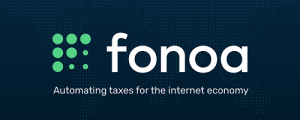- Traditional growth perspectives require teams, processes, and needs to scale, but the digital economy has changed this paradigm.
- Indirect tax compliance in the digital services landscape involves dealing with country-specific rules and regulations.
- Companies have options for handling compliance: insourcing, outsourcing, or co-sourcing.
- Insourcing provides maximum control but requires significant investment, while outsourcing offers external expertise but may introduce new hurdles. Co-sourcing combines internal and external teams, leveraging automation and providing a transparent flow of data.
Source Fonoa
Click on the logo to visit the website
Latest Posts in "World"
- OECD Publication: Governing with Artificial Intelligence: OECD’s Roadmap for Smarter Public Services
- E-Invoicing & E-Reporting developments in the news in week 36-38/2025
- OECD Report Explores AI’s Role in Tax Administration and Public-Sector Challenges
- AI In Tax: Common Pitfalls That Keep Projects From Taking Off
- Worldwide Upcoming E-Invoicing mandates, implementations and changes – Chronological
















